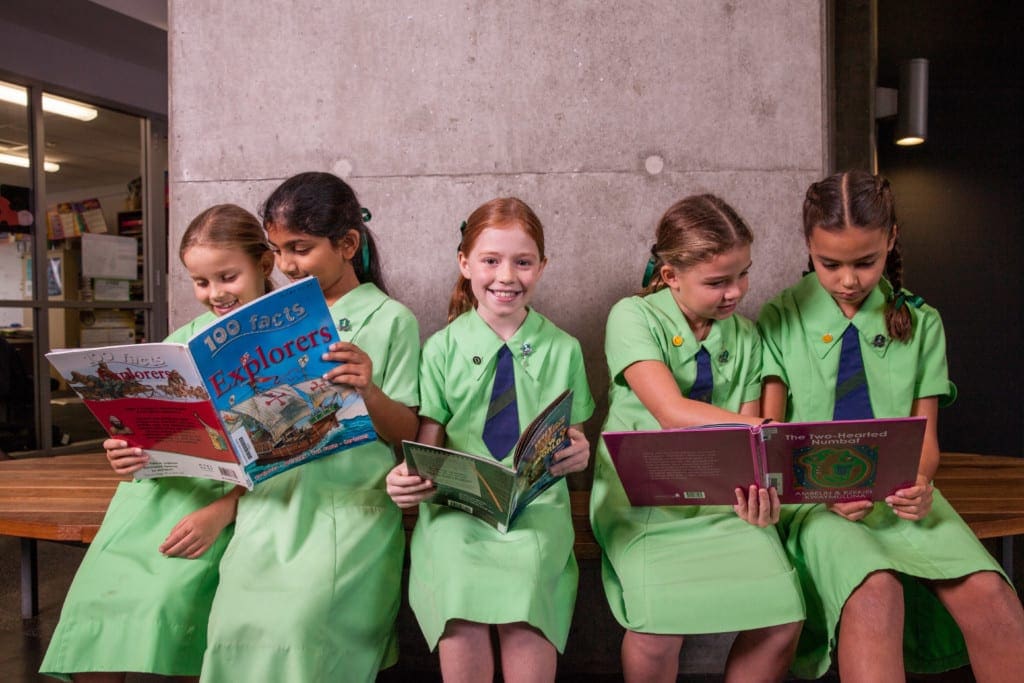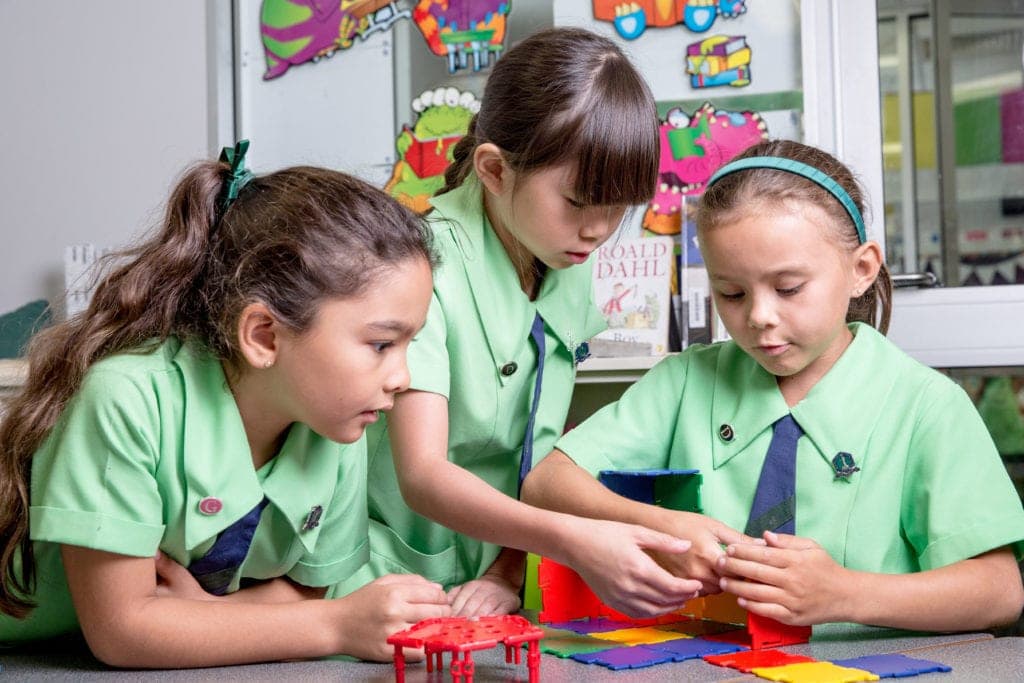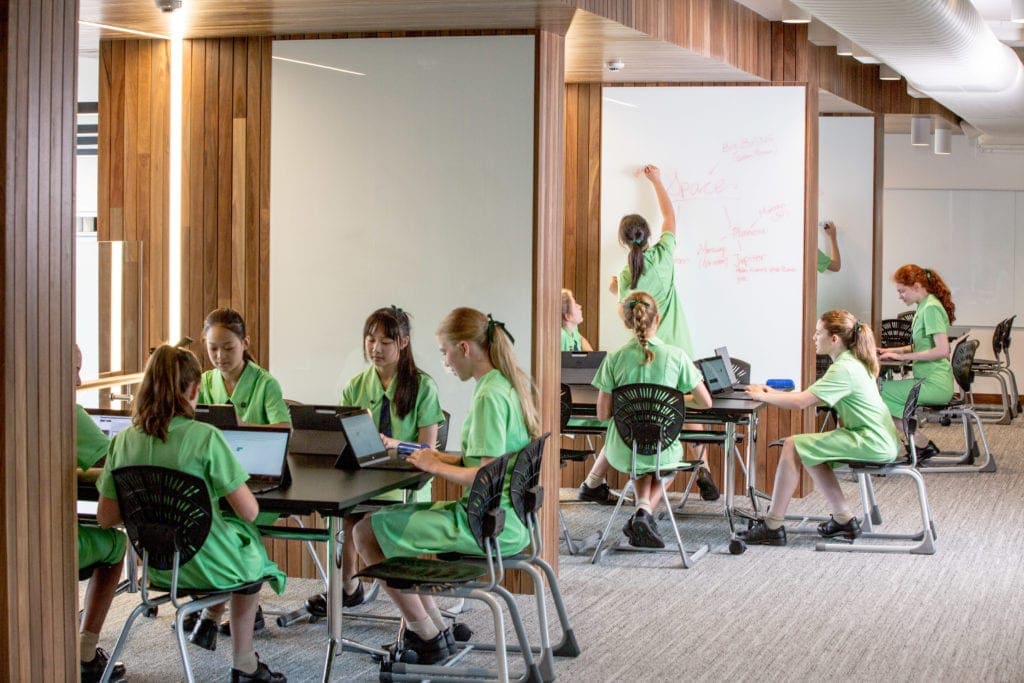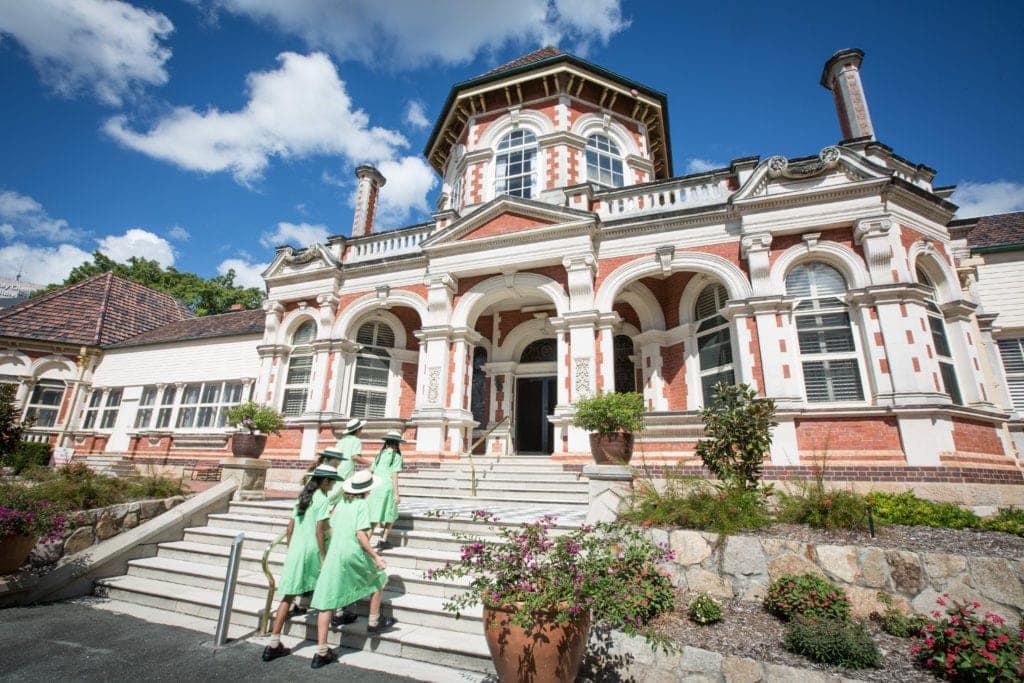For Brisbane School Open Days – click here
Why Choose Somerville House in South Brisbane
Somerville House is recognised as a landmark in education throughout Australia and Overseas.
Located in the inner-city suburb of South Brisbane, Somerville House provides a co-educational Pre-Prep program, classes for girls from Prep to Year 12 across Junior, Middle and Senior sub-schools and Boarding from Year 6.
The School consistently performs amongst the top schools in Australia and offers a safe and supportive environment with renowned academic, cultural and sporting programs and modern boarding facilities.
Pastoral care plays an important role at the school. A sense of belonging is fostered into each student at Somerville House, from the earliest primary years to the senior years. This pastoral care is further enhanced through junior and senior school buddy systems, camps, sporting and cultural activities, Christian groups and community engagement.
The academic environment of Somerville House is best described as progressive, seamlessly combining traditional values, modern day ethics and technology in a dynamic, supportive and challenging environment.
Purpose-built spaces that foster creative learning
A culture of learning inspired by innovation and progressive thinking is the foundation to stimulating creativity in our students. Somerville House offers a broad range of programs and opportunities for students to explore their talents, with a focus on continuous improvement and creative learning practices.
It is widely agreed that creativity is a combination of skill and talent, and environments that are learner-centred, foster both cognitive and metacognitive development of students, enhancing engagement and innovative thinking.
The Robinson Learning Centre is a purpose-built learning centre for our Years 5 and 6 students, designed to create functional learning spaces, adaptive to individual and group learning needs. Flexible configuration options through the use of movable glass walls and break-out spaces, facilitate different modes of learning, and opportunities for students to explore their own ideas, to think for themselves and to take learning risks. The teaching spaces support genuine interaction between students and teachers, providing the opportunity for reflection, self-assessment, and feedback.
Somerville House provides an environment where students can be responsible for developing their own creativity, become confident and independent learners, conscious of their strengths and responsive to the challenges and opportunities they face in their lives. Students are encouraged to liberate their imaginations, develop their talents, explore their interests and strive to meet their goals honourably.
What are the sporting/extra-curricular options at Somerville House?
The Somerville House Co-Curricular Program offers students a range of cultural, musical, sporting and social opportunities and provides a framework to identify, match and nurture student skills, talents and interests.
The School’s Music program includes string ensembles, bands and vocal choirs and woodwind, percussion and small string ensembles. Music is very much a part of Somerville House with our choral and instrumental ensembles exemplifying the excellence for which the School is known.
Students have the opportunity to participate in a wide array of sports, both in class lessons and at various competitive levels. Some of the wide range of sports that girls have access to include athletics, badminton, basketball, equestrian, fencing, football, cricket, netball, rowing, squash, swimming, tennis and touch football.
Cultural offerings include art, chess, debating, drama, musicals, mooting, public speaking and Robotics Club, with opportunities to perform and compete throughout the year.
Somerville House is Preparing Students for the Future Workforce
With much of today’s media coverage often focused on job losses stemming from automation, a recently published report from Deloitte Access Economics, The Path to Prosperity: Why the Future of Work is Human, looked at how robots and technology is increasingly taking over monotonous and repetitive tasks, resulting in the creation of more interesting jobs for humans.
The report states that over eighty percent of jobs created between now and 2030 will be for ‘knowledge workers’, establishing that we can use technology to our advantage to create more meaningful work. The report also found that two-thirds of jobs will be strongly reliant on ‘soft skills’ such as customer service and health care, with a strong focus on digital literacy.
Along with allaying concerns and demonstrating that humanity is not facing a dystopian future of rising unemployment, excitedly the report also showed that the future of work is female, with interpersonal and creative roles ‘of the heart’ becoming the hardest of all to mechanise.
Principal, Mrs Kim Kiepe, said she is encouraged by the findings and is proud of how they validate the academic, social and emotional learning opportunities available to all students at a school such as Somerville House. “Our core mission is to educate both the mind and the heart, and we aim to nurture girls’ creativity in a dynamic, supportive and challenging environment. With our Christian values grounded in care, and a range of curricular and co-curricular IT based subjects available throughout the Junior, Middle and Senior School, we work hard to ensure our students graduate with strong digital literacy skills,” she said.
Information Communication Technology at Somerville House
Always searching for meaningful and interesting ways to embed Information Communication Technology (ICT) skills into learning programs, teachers at Somerville House believe students should be learning digital literacy skills beyond their dedicated Digital Design and Technologies lessons. This includes teaching students from Prep to Year 2 how to use devices such as the keyboard and mouse, through to publishing work using Microsoft Word. From Years 3 to 12, all students are provided with a personal computer through the laptop program and have access to a brand new state-of-the-art IT help centre for maintenance and support. Students are also offered a range of technology-focused school holiday workshops and camps including Junior Engineers where students use Arduino robots to build and program their own hand-held game console and learn to code it.
These meaningful ways of building digital literacy skills into the curriculum assist our Junior School students in preparation for the Middle School Digital Design and Technologies program. Head of Digital Design and Technology, Mr Paul Herring spoke of how the Middle School program develops digital literacy and introduces students to an extensive and varied range of digital and design products, applications and approaches.
“The program is designed to complement and extend the use of Digital Technologies by the students in a dedicated lesson,” Mr Herring said. “It includes many aspects of Robotics such as the use of Spheros, 3D printing, graphic, web and video design, utilising a number of Adobe products. Students also learn how to use and code drones, explore Algorithmic Programming, computer animation and utilise augmented and virtual reality apps.”
Entering into the Senior School, students from Year 10 explore Information Communication and Technology as a subject, allowing them to take the skills and experiences from their Middle School Digital Design and Technologies program and apply them to gain a greater appreciation and understanding of how technology works.
Information Processing and Technology
When it comes to Years 11 and 12, Information Processing and Technology (IPT) is offered as a service subject to other disciplines where students can learn further techniques to complement their other subjects. The topic of social and ethical issues is also integrated, and students analyse how particular technological changes have impacted the way people live. The IPT course serves as valuable preparation for students who are looking to enter IT and Engineering courses at University or TAFE.
Building digital literacy and creativity does not end in the classroom, Somerville House also offers a Co-Curricular Robotics Club to students from Years 5 to 11. Robotics is one of the more popular activities available within the School’s Cultural and Community Co-Curricular program. Participation in Robotics has grown fourfold since 2016, making the Somerville House Robotics Program the largest by number of any girls’ school in Australia in 2018 (according to RoboCup Junior Australia). Robotics enables students to consolidate the elements of 21st-century skills such as algorithmic thinking, creativity, computer programming, problem-solving skills and teamwork in a fun and supportive environment.
Old Girl (2017) and Co-ordinator of Coaches for the Robotics Club, Ms Margaux Edwards, spoke of how having Robotics as an extra-curricular option at Somerville House inspired her to go on to study a Bachelor of Engineering, specialising in Mechatronics and Robotics.
“I studied IPT as a Middle School subject, which is now Digital Design and Technology, and part of that unit was looking at robotics for the first time,” Margaux said. “IPT allowed me to learn basic programming and theory, which I find has helped me a lot at university as I can look at a piece of programming or code and understand it. We also had the chance to participate in the RoboCup competition, which was part of the curriculum. My first robot was very much built with instructions, but to be able to program it myself and have the freedom and encouragement to build whatever I wanted to was amazing.”
Principal, Mrs Kim Kiepe, is confident the School is at the forefront of developing the necessary digital and interpersonal skills students need to make meaningful contributions to the future workforce. “I believe the opportunities provided at Somerville House prepare our students for the technological and transformative world they will enter upon graduating,” Mrs Kiepe said.
What are the public transport options to Somerville House?
The South Bank Train Station links directly to Somerville House, providing a great mode of transport to and from the school. The school is also close to two major bus stops – the Mater Busway and South Bank Busway. It is also close by to ferry terminals for students who need to travel over the river.
What are the school fees per term?
School fees, on a per term basis, are within the range of $4000-$6000.
What are the boarding options at Somerville House?
Somerville House offers boarding to students from Year 6 to Year 12.
Boarders enjoy contemporary air-conditioned facilities, purpose-built to cater for the study and lifestyle needs of teenage girls and considerate of the required balance between personal privacy and cohesive communal living.
The Boarding Houses incorporate modern bedrooms and bathroom facilities, shared leisure spaces, in-house kitchen areas, supervised study areas, soundproof music practice areas and balconies overlooking Brisbane city.
Does Somerville House offer scholarships and how do we apply?
Somerville House offers scholarships for academia, music and sport. The academic scholarship exam is held in February each year. Please visit their website for more information.
For Brisbane School Open Days – click here




